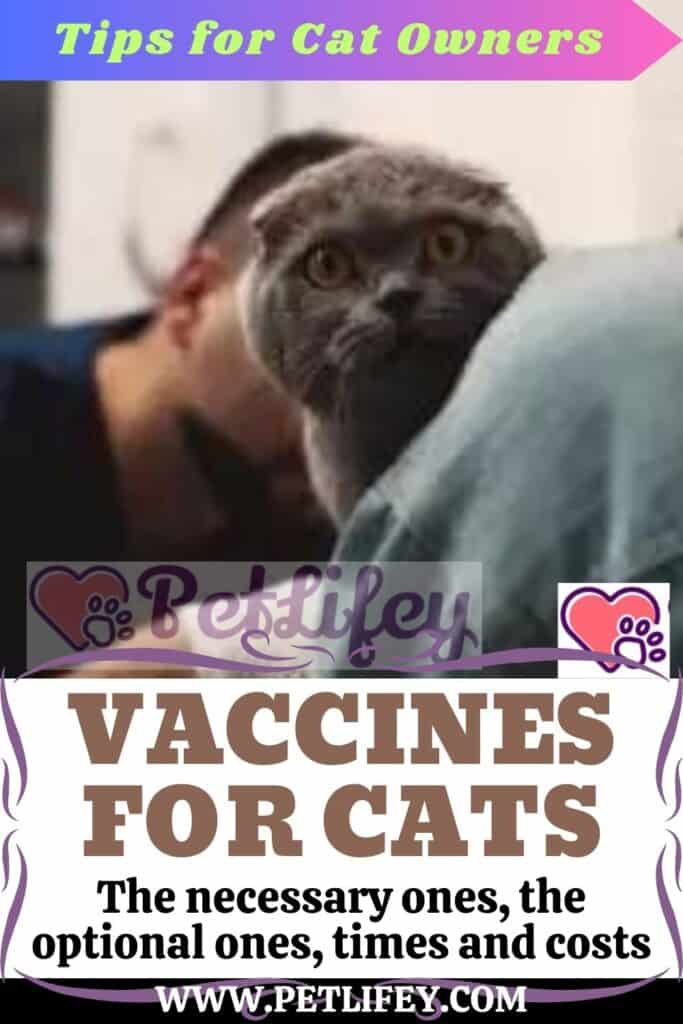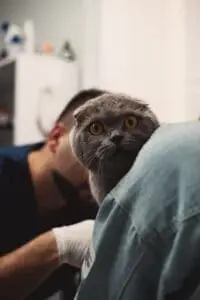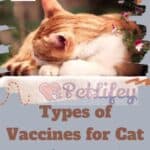
What vaccines are recommended to protect our cat’s health? What diseases do felines encounter? All the necessary information on vaccines.
A cat’s immune system is very delicate and above all, after weaning, it is more exposed to infections and diseases. Vaccinating represents a duty towards your animal, its peers and it is also a way to protect our health. Unfortunately, there are those who are convinced that it is necessary to vaccinate only cats that live outside the home or stray adopted. Although less frequently, all cats, even the ‘domestic’ ones, can have occasional contact with their peers: it is certainly not fair to let them live under a glass dome! So why not take the necessary precautions?
Times and costs
There are some who mistakenly think that it is better to vaccinate the feline around 5-6 months of age. In reality, the risk of disease at that time is very high, and our cat may have already been infected. First of all, it is essential to make a distinction between a newborn cat and another whose history we ignore. When we adopt a stray, perhaps an adult, we usually proceed with the examination of the FeLV (Feline Leukemia Virus) before vaccination. If the test is negative, you can proceed with the vaccination with a booster every three weeks.
If we take a newborn cat into the house, or in any case whose origin and mother we know, there is no need to get vaccinated immediately. Colostrum, or breast milk, guarantees perfect coverage of antibodies. Only from the seventh week you can proceed with the first vaccine: the right age for the first vaccinations is therefore around 2-3 months, with a booster 2-4 weeks after the first.
It is essential to have the cat examined and to know its state of health before vaccinations: an already debilitated cat can have very serious consequences when the immune system is not ready to receive the vaccinations. For the timing of administration it is necessary to evaluate many factors such as the age of the cat, the environment of origin and the area in which it lives. Instead, to travel it is important to bring an updated vaccination booklet with you: in case of need a new veterinarian will know well the clinical history of our cat.
The cost of the vaccine varies depending on the type, protocol and veterinary fees required. But it is absolutely not recommended to purchase the vaccine at the pharmacy and the ‘private’ administration of the drug: it is much better to entrust our cat in the hands of an expert, who will know better than us how to perform a subcutaneous or intramuscular injection to our feline.
What are Core vaccines and what they fight against
The guidelines of the WSAVA, the world veterinary organization for small animals, distinguished vaccines in Core, those highly recommended because they fight potentially fatal diseases, and Non Core, that is those not strictly necessary and on which research is still open. The ‘trivalent’ vaccine comprises the three types of ‘core’ vaccines against: rhinotracheitis, calicivirus and viral gastroenteritis. Let’s see them in detail.
Rhinotracheitis: from the Felid Herpes virus it can cause fatigue and depression, as well as copious discharge from the nose, sialorrhea (abundant salivation) and conjunctivitis. In the most serious cases it can compromise the respiratory faculties.
Calicivirus: purely respiratory infection that therefore affects the airways. In severe cases it can lead to lethal pneumonia.
Panleukopenia: Viral disease that causes intestinal problems such as diarrhea, nausea and vomiting and in the worst cases high fever, septic shock and death.
Non-core, i.e. optional, vaccines target diseases such as Feline Viral Leukemia and Rabies. Other useful vaccinations but not considered strictly ‘necessary’ are those against Coronavirus and Feline Infectious Peritonitis.
The risks

Many fear that the vaccinated cat may develop injection sarcoma. The basic misconception is that the vaccine is more dangerous than the disease itself. Sarcoma is a tumor, a disease that could occur years later and is by no means a certainty. Cancer of this type only affects genetically predisposed cats.
You need to be sure that the cat is able to withstand the consequences of vaccination and that it does not already have any disease in progress. For this reason it is always recommended to test the FeLV (Feline Leukemia Virus) before vaccination, to find out the state of health of our cat.






